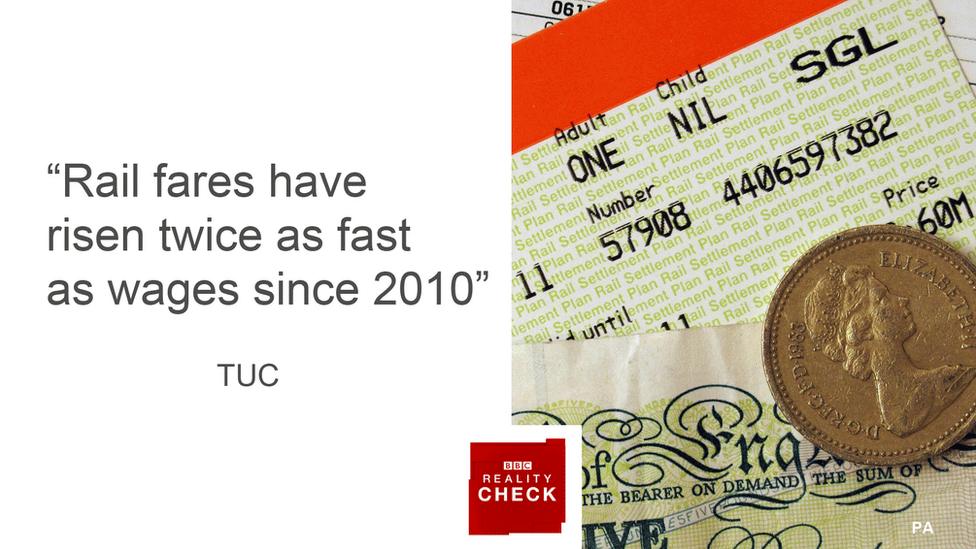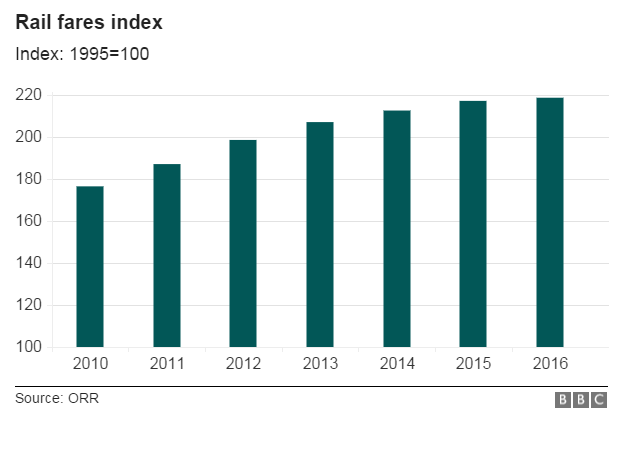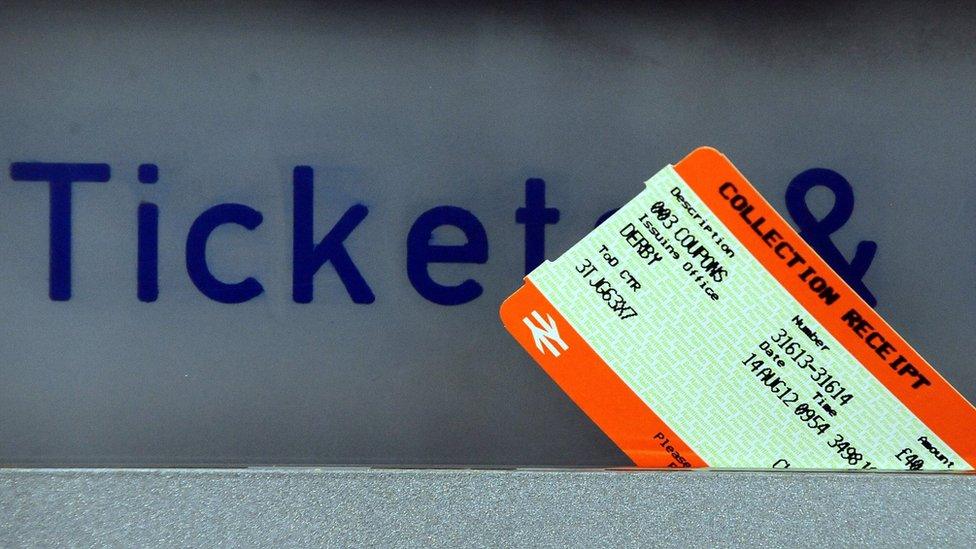Reality Check: Have rail fares risen twice as fast as wages?
- Published

The claim: Rail fares have increased at double the rate of wages since 2010.
Reality Check verdict: Rail fares have risen by double the rate of wages since 2010, but the rate of growth has slowed considerably in the second half of that period.
Average rail fares are one of the items in the basket of goods that the Office for National Statistics (ONS) uses to measure inflation.
As a result, we know that fares have risen by about 24% since January 2010.
We also know from the ONS that average weekly wages have risen by about 12% over the same period.
So the TUC is correct when it says that average train fares have risen by double the rate of wages since 2010.
But, there has been a change in government policy since 2010, which means that looking at the average since then does not give a fair picture.
After widespread criticism of rising fares, the coalition government, which took office in 2010, decided to act.
In 2013 it cut the cap on regulated fares from RPI inflation plus one percentage point, to July's RPI inflation rate. A year later it further tightened the rules, removing train companies' ability to increase certain fares within the cap.
The new rules meant regulated train fares - which cover about half of all tickets - could rise no faster than RPI inflation in July of the previous year until the end of the Parliament in 2015. That policy looks set to continue until 2020.
It means that the rise in rail fares has slowed considerably.
In fact, since January 2013, wages have risen by 5.7% while train fares have risen by 5.6%, external.
In 2015, the low rate of inflation meant that fares rose by less than wages.




- Published16 August 2016

- Published22 February 2016
